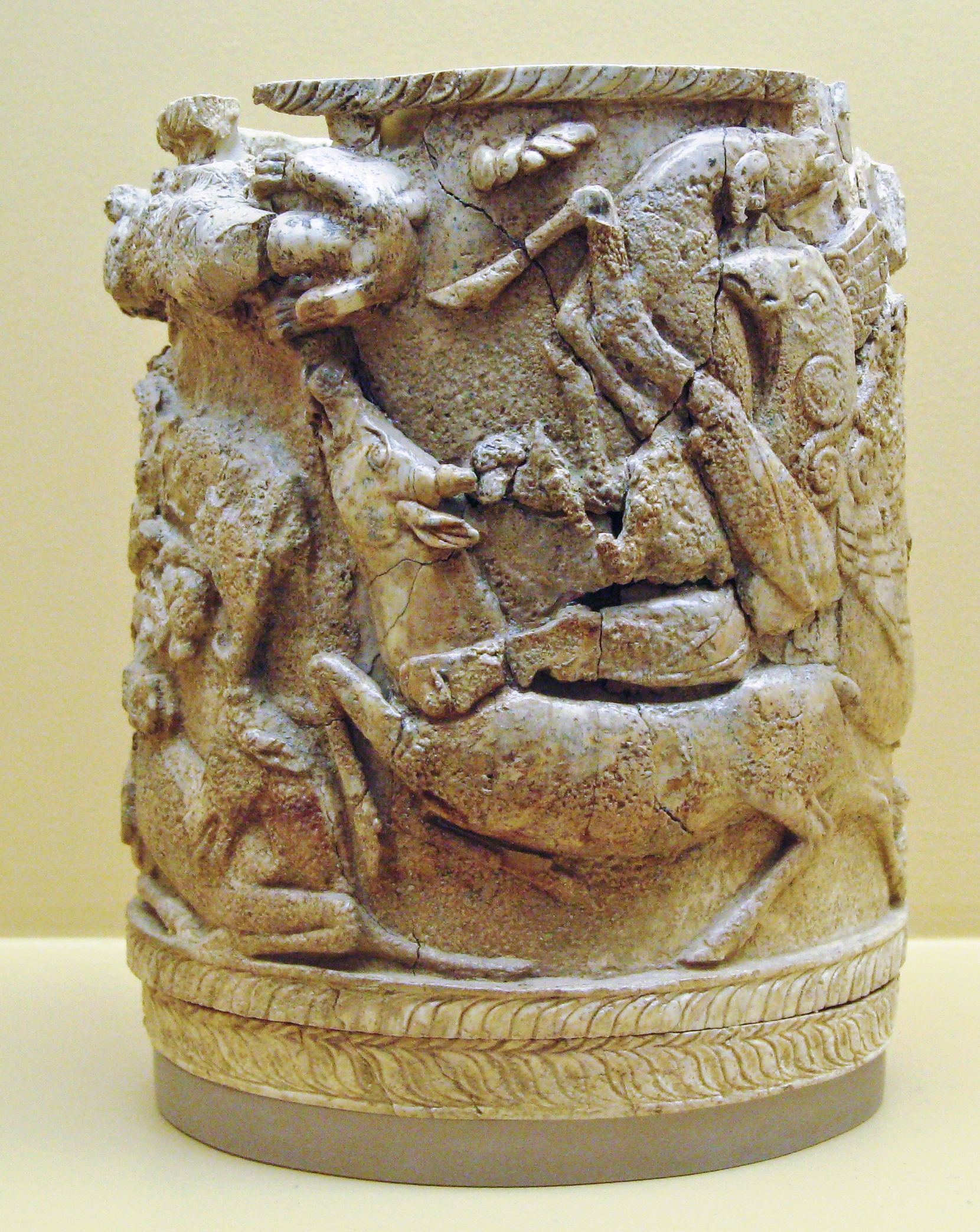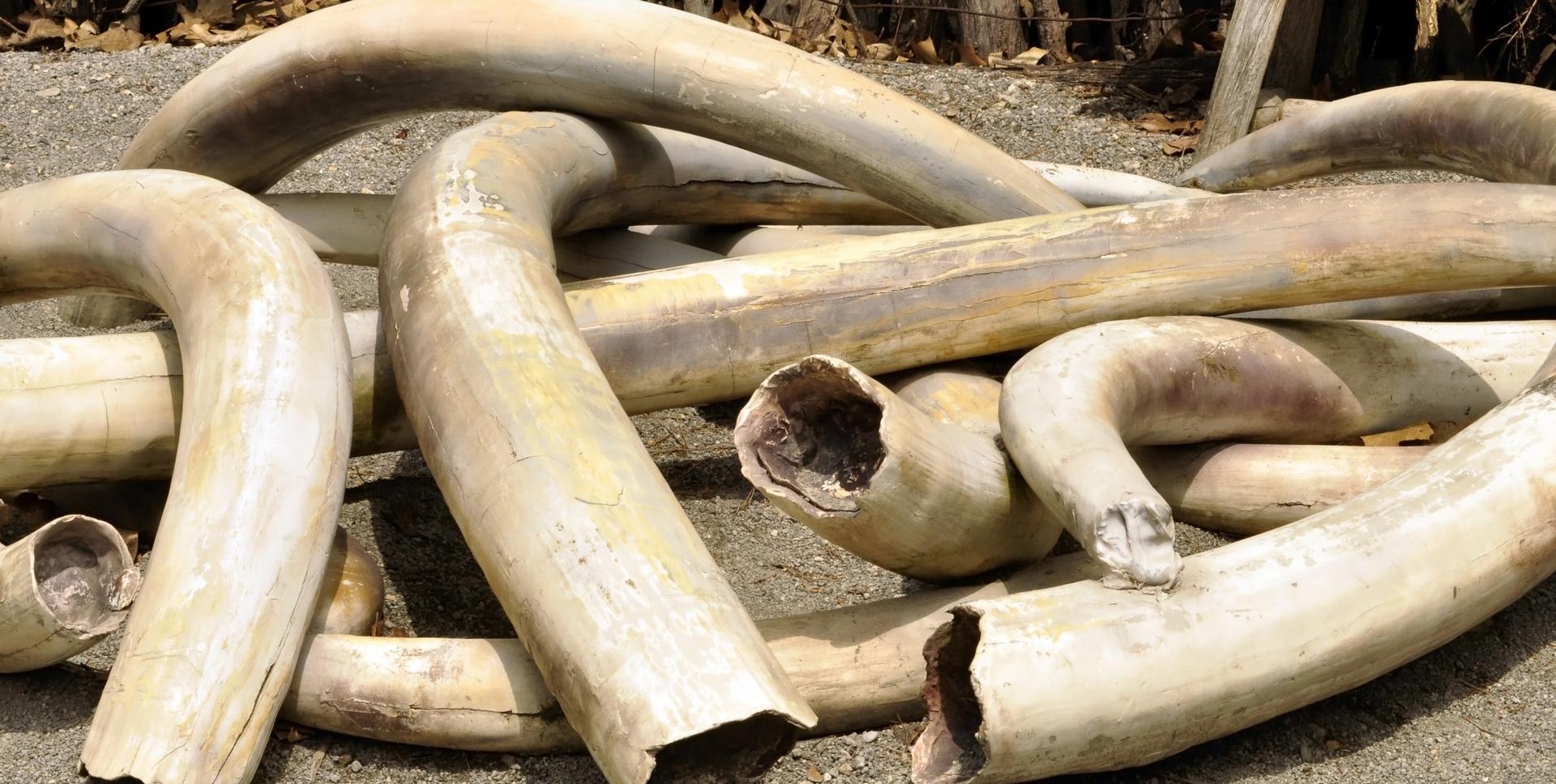Ivory in the Bible
Hebrew: שֵׁן —transliteration: shen —meaning: a tooth, ivory, a cliff —occurrences: 55, but refers to ivory only in 1 Kings 10:18; 10:22; 22:39; 2 Chronicles 9:17; 9:21; Psalm 45:8; Song of Songs 5:14; 7:4; Ezekiel 27:6; 27:15; Amos 3:15; 6:4
Hebrew plural: shenhabbim
Greek: ἐλεφάντινος —transliteration: elephantinos —meaning: made of ivory —occurrences: 1 (Revelation 18:12)
Ivory was a prestigious, high status material often used by elite ancient craftsmen and royalty. The “tusks of elephants”) were used in decorations from early ancient times by the Egyptians, and a large trade in it was carried on by the Assyrians (Ezek. 27:6; Rev. 18:12).
“…With ivory they have inlaid your deck of boxwood from the coastlands of Cyprus.” —Ezekiel 27:6 NASB

Ivory was used by the Phoenicians to ornament the boxwood rowing-benches of their galleys, and King Hiram’s skilled workmen made Solomon’s throne of ivory (1 Kings 10:18).
Ivory was also brought by the caravans of Dedan (Isa. 21:13), and from the East Indies by the navy of Tarshish (1 Kings 10:22).
King Ahab built an opulent ivory house (1 Kings 22:39), and “ivory palaces” are mentioned in Psalm 45:8.
The prophet Amos records the words of God’s judgment, which include,
“‘…The houses of ivory will also perish
And the great houses will come to an end,’
Declares the Lord.”
…Those who recline on beds of ivory
And sprawl on their couches…” —Amos 3:15; 6:4 NASB
“The sons of Dedan were your traders. Many coastlands were your market; ivory tusks and ebony they brought as your payment.” —Ezekiel 27:15 NASB
Many specimens of ancient Egyptian and Assyrian ivory-work have been preserved.
The word habbim is derived from the Sanscrit ibhas, meaning “elephant,” preceded by the Hebrew article (ha); and therefore it is argued that Ophir, from which it and the other articles mentioned in 1 Kings 10:22 were brought, was in India.
More information
- About ELEPHANTS and the Bible
- Who is KING SOLOMON?
- Who is King Hiram?
- What is TARSHISH?
- What is DEDAN?
 Answers about Ancient Egypt in the Bible
Answers about Ancient Egypt in the Bible- What is ASSYRIA?
- What does the Bible say about ASSYRIA?
- Who and what is OPHIR?
- Is INDIA mentioned in the Bible?
